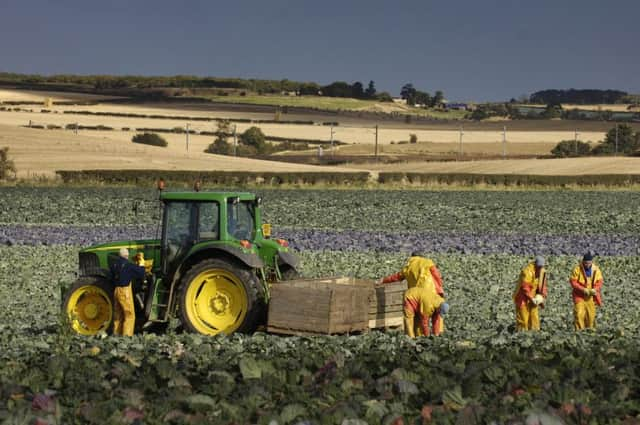Climate change is not our biggest problem


It may have escaped your notice, but 2015 is the United Nations’ “Year of the Soil” – a crucial resource we largely take for granted. It is a miracle that we can capture energy from a distant star via plants and convert it into usable forms upon which all life depends. There are mountains of research and columns on climate change, but little written about greater threats to us in the interlinking areas of food, water and energy security, which present a more compelling narrative of need and crisis for us as a species.
As global population grows inexorably to ten billion, we will need to double food production by 2050 – on the same land area, with less energy and water and with high environmental and social stewardship. No greater challenge has ever faced the human race. I strongly assert that we have mismatched priorities and are in danger of missing the real threats in pursuit of the illusory.
Advertisement
Hide AdAdvertisement
Hide AdThere is little real evidence of human-induced climate change. All scientists agree that the flawed models, upon which we base costly policy, are increasingly out of line with reality. All agree there has been no increase in mean measured global temperatures for almost two decades. The argument is between these theoretical models or real measurements: 18-nil to reality so far!
There is no argument that polar ice sheets are now growing, sea levels are not rising and no increase in extreme weather despite predictions. The climate has always changed, but links with carbon dioxide levels are becoming increasingly unlikely with each passing year. Over the last 30 years, increased CO2 helped us by increasing global crop yields and natural vegetation by between 7 per cent and 14 per cent. Correlation is not causation and there is an increasingly poor correlation.
We concentrate limited resources on a non-problem and ignore more pressing issues. Whilst driving the poorest into fuel poverty by doubling electricity costs via wind power, we despoil landscapes and steal funds from the areas of health, education and research, where needs are more pressing and would create more jobs.
We do need to increase energy efficiency and husband resources, but we go about it in an inefficient and profligate manner. Should we subsidise foreign energy companies or spend more caring for our elderly people and children, and invest more in agriculture, water and energy research? In reality we cut back there.
I see a real danger of Europe becoming an over-legislated, under-performing backwater in these crucial areas. Scotland has abundant water and agricultural resources, but more research and better practice is needed to husband them for the good of all.
Scotland also has a clear role in global agriculture, but has been hampered by cutbacks coupled with misguided application of the precautionary principle which has hindered wealth creation. Our global lead in crop genetics research has been thrown away by government.
While careful genetic manipulation of crops achieves great success around the globe by reducing pesticide use and decreasing energy and water use, we have turned our backs on these advantages. This technology, not exclusively GM, offers immense promise in feeding and clothing the “Ten Billion” while bringing health and environmental benefits.
Every Scottish household is full of GM products grown safely in other nations. We are adept at exporting our “problems” by outsourcing to the United States or China for food or manufactured goods; our own parochial valley is not as green as it appears. Organic production is extremely resource hungry in its need land, taking up to four times as much land to produce a loaf as conventional farming and is just as open to pollution, while benefiting from previous fertiliser use.
Advertisement
Hide AdAdvertisement
Hide AdIf adopted globally, it would swiftly be termed “genocide agriculture” as it could not feed our current numbers, let alone children yet unborn. My experience in Cuba has shown organic to be a failed myth when adopted nationally, with 70 per cent of food imported and ration card-carrying citizens despite labour and climatic advantages.
Only by careful and targeted use of increased research and technology in the linked areas of food, water and energy can we hope to survive and thrive. There can be no going back to a “‘halcyon age” – which never existed in the first place.
Maybe we should be addressing the real, verifiable challenges and spending less resources on the imagined clothes of the emperor?
• Scientific Alliance Scotland www.scientific-alliance.org/scotland